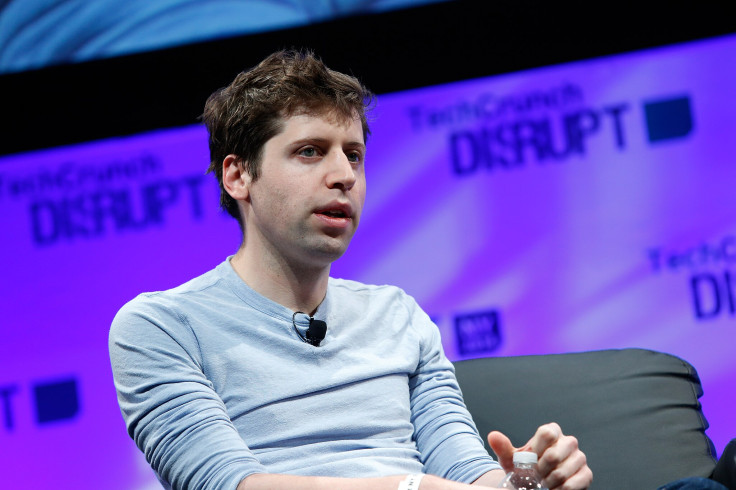OpenAI's SearchGPT Is Coming For Google Search; Here Are The Features That Will Reportedly Make It Better
SearchGPT is more conversational than current search engines

On Thursday, Sam Altman's OpenAI introduced a test version of its highly anticipated AI search engine, directly challenging Google's dominance in the online search market.
Dubbed "SearchGPT," the tool will offer "fast and timely answers with clear and relevant sources" by referencing content from websites and news publishers, including OpenAI content partners such as News Corp (The Post's parent company) and The Atlantic.
Reports of an Altman-led AI startup entering the web search market to compete with Google surfaced in February. After months of speculation, OpenAI's search tool has arrived, promising a more conversational and interactive experience than traditional search engines.
SearchGPT: A New Era Of Search
After users submit an initial prompt, like "music festivals in Boone, North Carolina in August," they can ask further questions, such as "Is a specific venue family-friendly?" SearchGPT will use the context of the original query to provide the most relevant answer.
Last year, Google introduced new search features powered by Generative AI to streamline information access from various sources. Meanwhile, OpenAI is currently testing its search tool with a limited group of users and publishers to gather feedback, as announced in a blog post.
Eventually, OpenAI will incorporate the search tool into ChatGPT, which boasted over 100 million weekly users last fall. For now, interested users must join a waitlist to access the tool.
"Sam and the truly talented team at OpenAI innately understand that for AI-powered search to be effective, it must be founded on the highest-quality, most reliable information furnished by trusted sources," News Corp CEO Robert Thomson said in a statement.
"For the heavens to be in equilibrium, the relationship between technology and content must be symbiotic, and provenance must be protected," Thomson added.
OpenAI's entry into the search market further complicates matters for Google, which is facing a crucial antitrust lawsuit from the Justice Department over its alleged dominance of the online search market. A ruling on the case is expected this fall. Alphabet's stock price plummeted nearly 2 percent following OpenAI's announcement.
OpenAI emphasised that information retrieved from particular news outlets and publishers will be prominently credited with clear, in-text citations and direct links, allowing users to identify the source and explore further details.
"We are committed to a thriving ecosystem of publishers and creators," OpenAI added. "We hope to help users discover publisher sites and experiences, while bringing more choice to search."
OpenAI has not announced a release date for the full rollout of SearchGPT. The company also emphasised that publishers who decide not to permit their content for OpenAI model training can still be featured in SearchGPT results.
News Corp's Thomson hailed the content licensing deal with OpenAI as a pivotal moment to reshape the search landscape long dominated by Google. Beyond partnerships with News Corp and The Atlantic, OpenAI has forged alliances with the Associated Press, Politico's parent company Axel Springer, Dotdash Meredith, and other news publishers.
Simultaneously, OpenAI faced a copyright infringement lawsuit from The New York Times, accusing the AI company of unauthorised use of its articles. OpenAI has denied any wrongdoing.
Google's Dominance Under Scrutiny
Despite holding an overwhelming 90 percent market share in online search, eclipsing competitors like Microsoft and DuckDuckGo, Google has faced increasing scrutiny.
The Department of Justice (DOJ) has filed an antitrust lawsuit accusing the tech giant of maintaining its dominance through billions of dollars in annual payments to companies like Apple and AT&T to ensure Google Search remains the default on most smartphones.
The search engine giant has come under intense fire for its alleged practice of using copyrighted content from publishers without proper attribution or compensation to train its AI models. This has sparked significant controversy and legal challenges.
In June, Google introduced a contentious search feature called "AI Overviews," which automatically generated summaries displayed prominently at the top of search results. This move overshadowed traditional links to publishers and news outlets, leading to widespread criticism.
However, Google's AI Overviews feature, introduced in June, met with immediate and harsh criticism. News Media Alliance CEO Danielle Coffey said the feature was a "perverse twist on innovation" that will be "catastrophic to our traffic."
While OpenAI's SearchGPT represents a formidable challenge to Google's search dominance, whether it can successfully dethrone the tech giant remains to be seen. With both companies investing heavily in AI and search technology, the battle for the top search engine spot is far from over.
© Copyright IBTimes 2025. All rights reserved.






















